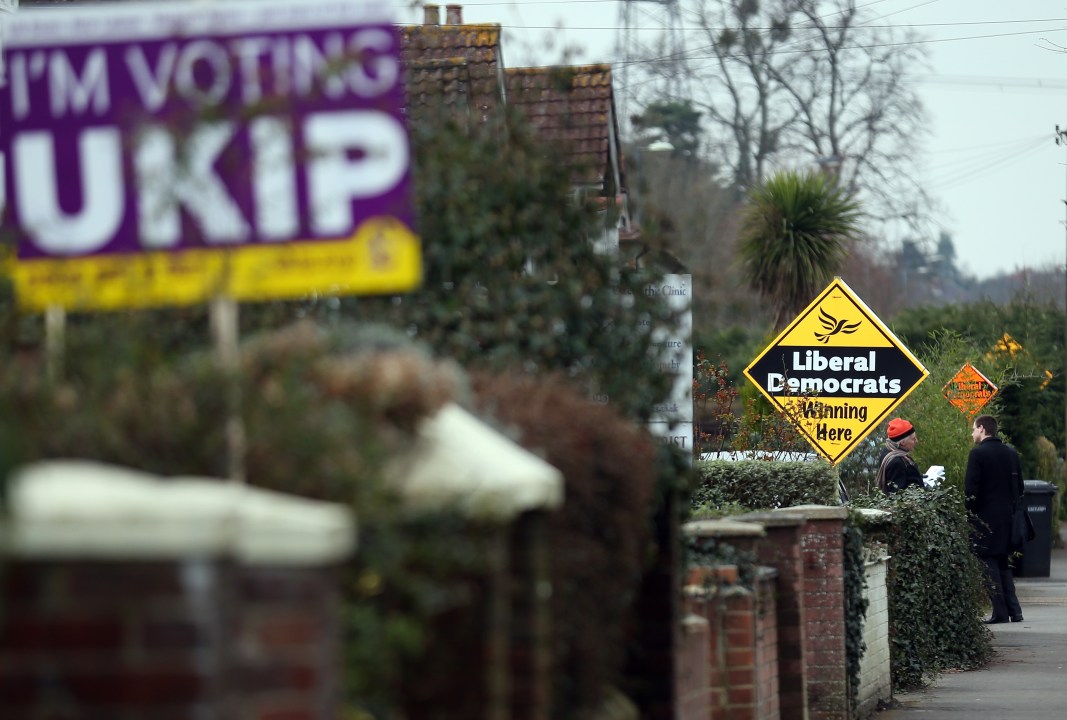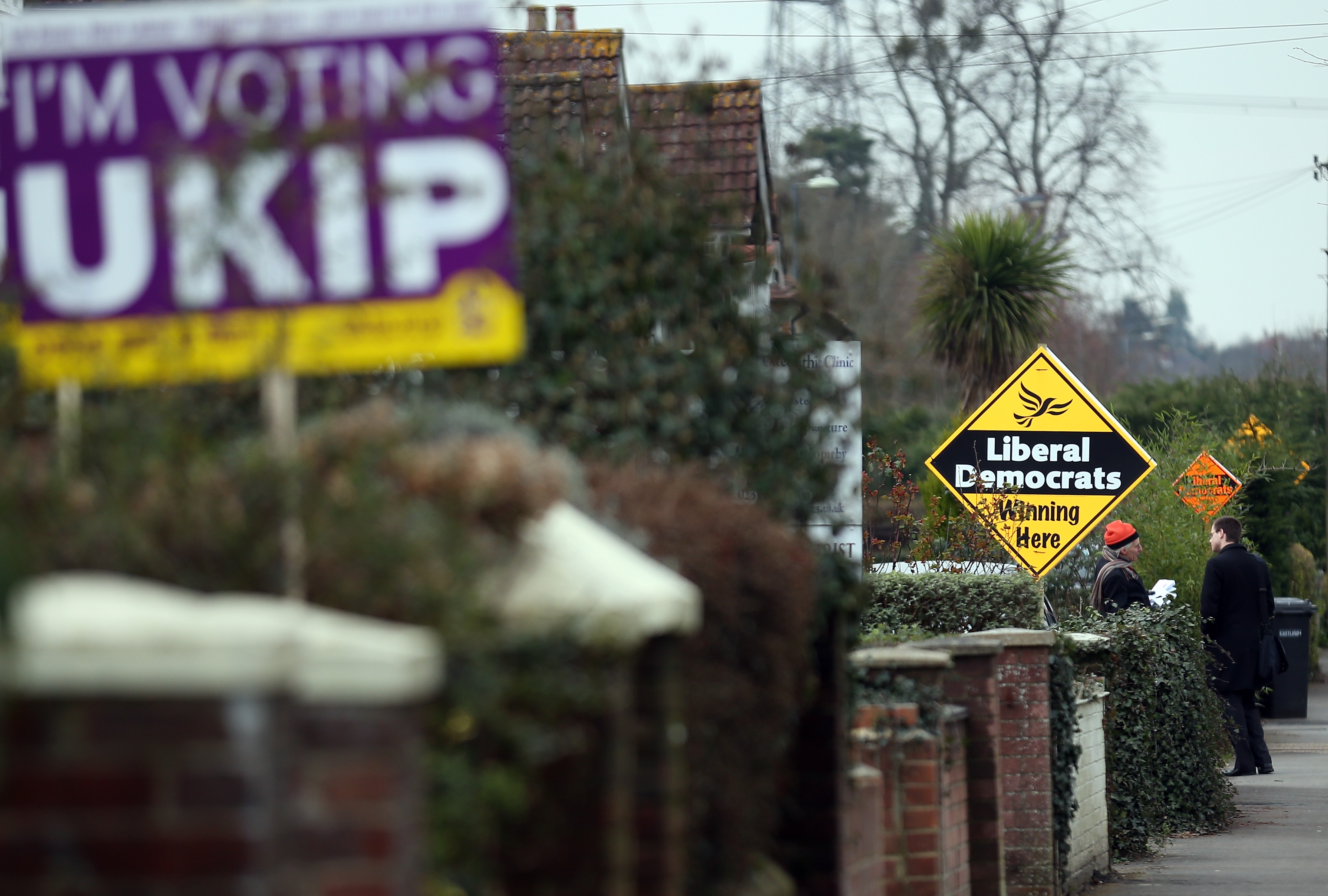OK. Remember this: by-elections are always liable to be interpreted too keenly. Elections often fought on local issues then have their results scrutinised as though the election was a miniature general election. It isn’t. People who should know better this morning are forgetting that.
You know what else matters? The candidate. They matter much more at a by-election than they do in a general election. The Tory candidate Maria Hutchings might have won Eastleigh in a general election. But a by-election brings greater scrutiny. A good number of voters are minded to pick the best candidate. I suspect few of those voters endorsed Ms Hutchings.
Meanwhile, the Lib Dems chose a perfectly decent-seeming chap while UKIP’s candidate seemed more like a presentable Tory than the Tory candidate herself. Indeed on any number of issues Ms Hutchings seemed – from this distance – to be closer to UKIP’s views than to her own party’s official line. It is hard to think how the Tories could have chosen a worse candidate than one whose every utterance encouraged people to sympathise with UKIP. Ms Hutchings – a calamitous candidate – might as well have wandered around Eastleigh brandishing a sign saying “Vote UKIP, They Are The Real Thing”. That or, “Are you thinking what I’m thinking?” Because we know that one works.
Coming third is not, obviously, a very cheery result for David Cameron. But, my, don’t you get the sense that a good number of Tories are secretly quite pleased by this so-called disaster? The head-bang wing have long thought Cameron a hopeless squish (see James Delingpole, for instance). Anything which embarrasses Cameron is happy news to them.
Meanwhile, Stewart Jackson, MP for Peterborough (poor Peterborough!) a comically reductive agument. It was the gays what lost it. That and the fact English people are terrified of Romanian barbarians. Jesus.
These people are so obsessed with not being out-flanked on their right that they become disconnected from the centre. Chasing the UKIP-minded vote is not a cost-free exercise. Not if it loses you votes in the middle it ain’t. A Tory-UKIP pact would be a disaster for the Conservatives. If you think they’re damaged by coalition, wait until voters see the Tories being bullied by a minor, eccentric, party such as UKIP.
Gay marriage has, it is true, split the Tory party and every Tory MP can tell you he knows people who have given up volunteeering for the party as a result of Cameron’s enthusiasm for equal marriage. So it has had an impact. But the notion that gay marriage is going to have much of an impact upon the next election is a stretch. The issue will have faded by then and lost whatever salience it ever had. More important: the Tories just weren’t as well organised as the Lib Dems. A point Nick Denys makes well.
My old chum Iain Martin is closer to the mark when he notes that drawing more families into the 40 per cent tax bracket (for a portion of their earnings) has caused the Conservatives more trouble with the aspirational, successful middle-classes than is sometimes appreciated. The rumpus over child benefit has doubtless played a part too. All true. But Iain fails to menton Osborne’s single biggest political blunder: cutting the top rate of income tax from 50 per cent to 45 per cent.
Politics is often a matter of signalling. And that tax cut – however neutral in revenue terms – shouted: We are the party of the super-rich and we will look after our own. It drowned out any benefit the Tories might have hoped to gain from increasing the personal allowance (a Lib Dem policy anyway). To the extent anyone can ever recall anything the Chancellor does, I’ll bet that people remember Osborne’s desperation to cut income tax for the wealthiest 3 per cent of Britons. (He’s lucky more people don’t remember that he also increased VAT for everyone).
People are fed up. Even in prosperous southern England (though, sure, Eastleigh is not a wholly typical southern seat). No wonder there’s a plague on all your houses mood. But, look, there is no UKIP tsunami (though they will certainly do well at the European elections). Lord Ashcroft’s invaluable exit poll reports that only 43 per cent of yesterday’s UKIP voters will stick with Monsieur Farage’s gang at the general election. 80 per cent of UKIP voters admit their vote was a protest.
You can’t make a deal with these voters. Nor can you win a general election if your chief aim is to pander to people who hate you.
So is Cameron in trouble? Sure. An increasingly large part of his own party can’t stand him. But that doesn’t mean the country as a whole is ready to embrace Prime Minister Miliband. At least I hope not.
Still, perhaps the biggest thing to note is that the combined Tory-Labour vote barely scraped above 33 per cent in Eastleigh. That’s not very different from the result at the Bradford by-election when the two traditional parties combined support amounted to just a third of those who bothered to vote. As Isabel suggests that’s more important than chasing the UKIP vote.
How much more can Cameron & Co offer the right anyway? On Europe he’s done his best to give them what they want. Ditto on immigration. So, as both Dan Hodges and Jeremy Cliffe ask, what next?








Comments